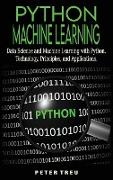- Start
- Python Machine Learning for Beginners
Python Machine Learning for Beginners
Angebote / Angebote:
Do you Want to learn more about Python Machine Learning ?.... then read on.Machine learning stems from this question: Can a computer go beyond anything we can order to do and learn by itself to do a specific task? Can a laptop surprise us? Instead of having programmers carefully and manually writing a set of data processing rules, can a computer automatically learn these rules by merely looking at the data?This question paves the way for a new programming paradigm. In classical programming, on which symbolic artificial intelligence is based, human beings insert rules (the program) and the data to be processed according to these rules and obtain answers. Humans enter data and expected responses based on that data with machine learning, and the computer identifies the practices. These rules can then be applied to other data to produce different, original answers.A machine learning system is trained and not programmed. He is presented with numerous examples relevant to a given task. In these examples, he finds a statistical structure that ultimately allows him to produce the rules for the task's automation. For example, to automate tagging vacation photographs, many examples of images already tagged by humans could be presented to a machine learning system. The system would be tasked with learning the statistical rules based on associating individual images with specific tags. Machine learning is closely related to statistics, but it differs from them in many important ways. Unlike statistics, machine learning tends to operate with large and complex datasets (such as a dataset of millions of images, each consisting of tens of thousands of pixels) for which classical statistical analysis such as Bayesian analysis would not be usable. . As a result, machine learning, and especially deep learning, exhibits somewhat limited mathematical theory - sometimes too much - and is more technical than mathematical. It is a practical discipline in which ideas often prove more empirically than theoretical.In this Book you will learning:What is Data Science and Deep Learning?Data Science and ApplicationsProbability - Fundamental - Statistics Understanding the Fundamentals of iMachine LearningTypes of MachineiLearningWhat is iPython? SettingiUp the Environment in PythonK - Nearest Neighbor AlgorithmsMeans ClusteringNeural Networks - Linear ClassifiersWhile most books focus on advanced predictive models, this book begins to explain the basic concepts and how to correctly implement Data Science and Machine Learning, with practical examples and simple coding scripts. This guide provides the necessary knowledge in a practical way. You will learn the steps of Machine Learning, how to implement them in Python, and the most important applications in the real world.Would you like to know more?Download the Book, Python Machine Learning. Scroll to the top of the page and click the "Buy now" button to get your copy now.
Fremdlagertitel. Lieferzeit unbestimmt
